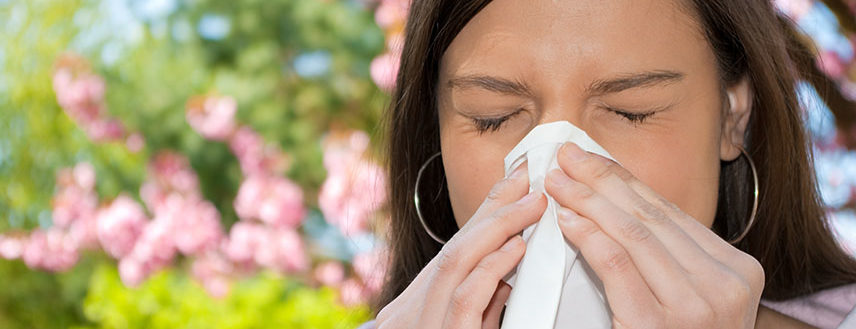
Allergy season is getting an early start this year. Allergies are caused by an exaggerated immune response to triggers such as pollen, mold and dust. And while avoiding the allergen is ideal, it’s not always possible or practical, especially in the spring when pollen is everywhere. Instead of fighting back with antihistamines, a natural alternative is vitamin C.
Antihistamines work by blocking histamine, a substance that is released by the immune system cells, which then attaches to the receptors in blood vessels, causing them to enlarge. Histamine also binds to other receptors causing other symptoms such as redness, swelling and itching. By blocking histamine and keeping it from binding to receptors, antihistamines prevent these symptoms.
While antihistamines can be effective at treating the symptoms of mild and seasonal allergies in particular, there are a number of potential side effects associated with taking them. They can cause drowsiness and give you that foggy feeling, but more significantly they do not stop the problem in the first place, they merely mask the symptoms.
Instead, you can consume antihistamines in your diet. Nature’s top edible antihistamines are found in foods containing vitamin C and quercetin (a powerful bioflavonoid). Additionally, there is new evidence to suggest that foods rich in omega-3 fatty acids can help reduce allergy symptoms as well.
As a natural antihistamine, vitamin C works by destroying the molecular structure of histamine, thereby decreasing the amount of histamine in the blood. The absorption of vitamin C is highly dependent on the amount ingested therefore it is recommended that more than 500 mg per day is consumed through food or supplementation in order to achieve tissue saturation.
Research published in the European Respiratory Journal found that ingesting fruits high in vitamin C helped to reduce asthma symptoms in 8-year-olds. Other research found evidence to support the role of vitamin C supplementation in adults who suffered from allergic rhinitis.
Vitamin C rich foods should be eaten as soon as possible when fresh, as they lose their strength after being exposed to air, or being processed, boiled, or stored for long periods of time. Taking a vitamin C supplement may be a more practical way for those suffering from seasonal allergies to increase their consumption on a daily basis.
